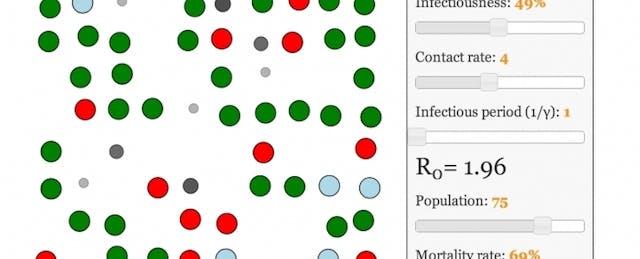Has the online course creation market gone stale already? Launched on Tuesday, newcomer Versal hopes to breathe life and possibilities into what they see as a very limited set of tools that currently exist. Their course-building platform offers a set of pre-made gadgets that allow teachers to build interactive courses on their platform through a what-you-see-is-what-you-get drag and drop interface.
To add interactivity beyond basic pictures, texts and embedded quizzes, Versal uses gadgets to create interactive graphs, simulations, and models. With these gadgets, teachers can build models or simulations that the students use to experience and manipulate the content they are learning. Examples include a 3-D model of a skeleton where students click on parts of the face that will then appear on the skeleton, and a simulation where students can set limits like population and and contact rate to see how disease spreads. Sharing courses with students is enabled via Facebook, Twitter, email, or direct links.
Currently there are only 15 different gadgets on the site, but with an open interface, Java developers can also create their own gadgets to add to the mix. The company hopes this number will grow as developers join in. Versal’s goal is to provide the education community with tools to build better and more engaging ways of teaching through online courses. As CEO Gregor Freund sees it, “education has to be a fabric of amazing people who devote their lives to teach, what we do is give them the tools to do that.”
To create incentives for teachers and developers, Versal also launched on Tuesday the Versal Foundation. The Foundation will fund nonprofits or individuals to build courses and gadgets on the platform focused on basic knowledge in math, languages, or natural science. The foundation will prioritize funding courses that target underserved populations. Once courses or gadgets are created for the foundation, they will be free and licensed under a Creative Commons license.
Can Versal provide a path for online course creation to go beyond traditional pedagogy? Will we will see constructivist and inquiry based teaching come alive online? It seems this will hinge on the teachers using it and how they creatively choose to implement the gadgets. Perhaps, the $1,000 - $25,000 grants from the Versal Foundation can incentivize just that.


